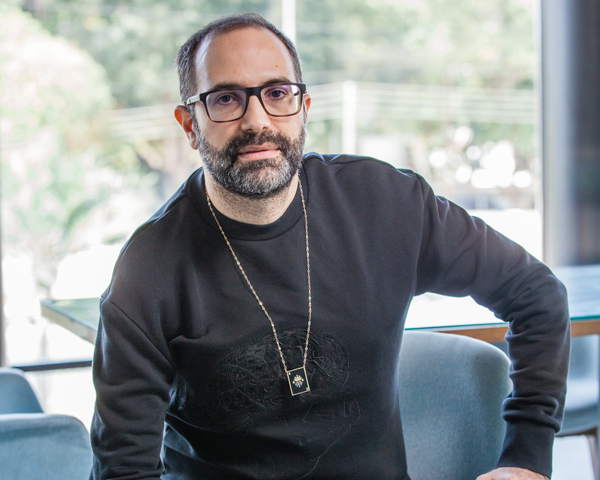Dr. El Sahili developed, through The Healthcare Studio, the Q-HUB idea, a network of health facilities dispatched in rural locations, which assisted during the pandemic to boost the overall screening, vaccination, and treating national capacity of patients with Covid19 disease. This has contributed to the reduction of overcrowding in the country's existing facilities. It has also assisted the public in reaching its desired vaccination rate.
The idea is based on smart technology, solar energy, and telemedicine. Q-HUB was also used to supply clean and clear water to neighboring villages, to raise awareness about waste management, and to provide vaccinations to children under the age of five.
The units have now been recalled in order to convert them into primary care units, which will give expanded medical services as well as access to both water and energy to local villages.
Q-HUB has built a novel link between sustainable healthcare and other industries such as telecommunications, banking, renewable energy, and infrastructure. It also contributed to young empowerment by supplying energy to recharge lifestyle and educational equipment. The units also offered the necessary platform for accessing information and therefore raising public awareness. This led in a greater understanding of a few symptoms, and with the help of telemedicine, it was feasible to diagnose treatable diseases early. People were able to save money on unnecessary transportation and time as a result of this. Redesigned healthcare gave rural communities new vitality on many levels.
The deployment of Q-HUB had a substantial impact in various areas:
- Improved access to COVID-19 testing. This aided in the identification and isolation of sick persons, hence preventing the virus's spread.
- Each unit can execute 288 tests/day, increasing Zambia's overall testing capacity by 30-50%. This aided in the early discovery and control of COVID-19 cases, decreasing the load on the healthcare system and providing better data.
- Resource mobilisation from various sectors, including healthcare, logistics, and finance resulting in the employment of 50 persons.
- Policy and budgetary impact: The project changed healthcare and disease control policies and finances. Governments have increased funding for testing and developing rural healthcare facilities for Covid 19.
- Contribution to SDGs: The initiative helped to achieve several SDGs, including SDG 3 (Good Health and Well-being) by improving access to healthcare services, SDG 8 (Decent Work and Economic Growth) by creating job opportunities, and SDG 10 (Reduced Inequalities) by addressing disparities in access to healthcare between rural and urban areas.
The population of the rural areas where the mobile units are deployed determines the number of persons affected. However, we were looking at a population of 311000 plus in the catchment area.
We are aware that mobile units have been introduced in several nations throughout the world to expand access to COVID-19 testing, particularly in remote locations.
In Zambia, the introduction of eco-friendly mobile COVID testing units was a relatively novel reaction to the pandemic.
• The mobile units were deployed in various regions to reach people who may not have access to testing, vaccination, or treatment facilities and cannot afford to travel to get tested.
• Q-HUB in Zambia was a unique solution to tackling the Covid-19 difficulties in the country, particularly in remote or underserved areas. The plan aided in increasing access to testing and immunization, as well as improving the country's ability to recognize and respond to the covid-19 outbreak.
• Q-HUB was also able to assist industrialists because the units were locally made in-country. The demand for water to power the units aided in providing clean and clear water for neighboring communities. The utilization of solar energy also assisted adolescents in gaining access to power in order to meet their everyday technological needs.
• Q-HUB personnel replied to several health demands and raised public awareness.
• The screening unit quickly became a social hub that brought smiles on many people's faces.
The Q-HUB initiative has proven that cooperation between government, business, and non-profit organizations is key to accelerating progress toward the Sustainable Development Goals. The struggle against poverty and for the elimination of all forms of inequality requires, among other things, that health care be made available to all. After the government announced that all restrictions on Covid-19 would be lifted, the decision was made to recall the units. To better serve as a hub for health, employment, renewable energy, clean and clear water, and information, the Q-HUB initiative is now being expanded. Decentralizing access to services reduces the stress on government and business in big cities, making this model transferable to other emerging nations.
The primary motivation for launching Q-Medland units under Q-HUB was to contribute to expanding the country's overall capacity for screening, vaccination, and treatment.
Other social benefits, such as improved access to water and energy in areas where infrastructure was previously a problem, began to emerge after the project was put into action. It snowballed to the point where rural communities' needs were driving the development of new services. Dr. El Sahili and various recycling and waste management groups, for instance, have been compelled to discuss the best means by which waste can be managed on a community scale, as opposed to a mobile unit level, as a result of the new design of the units.
The primary project's success has improved communication between many groups and revealed the need to fortify connections between, say, climate and health. It is now our mission to transform every mobile unit into a center that keeps talented people from leaving rural areas and encourages them to stay where they live; in other terms, rural brain gain.
The first step in achieving the SDGs is the moral affirmation of the efforts made during times of crisis, which serves as a catalyst for enhancing service to communities by focusing on multiple facets of their everyday life.
